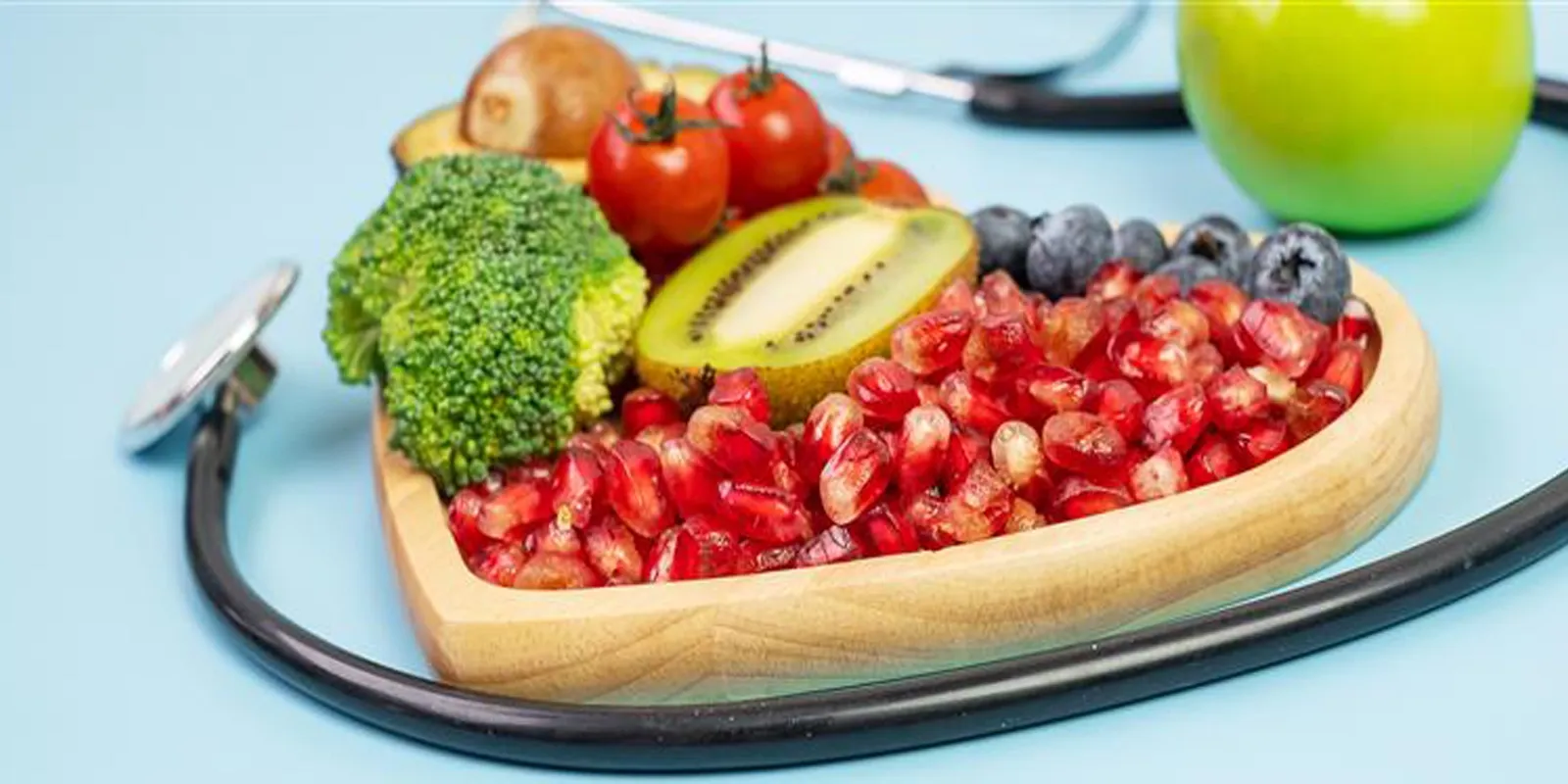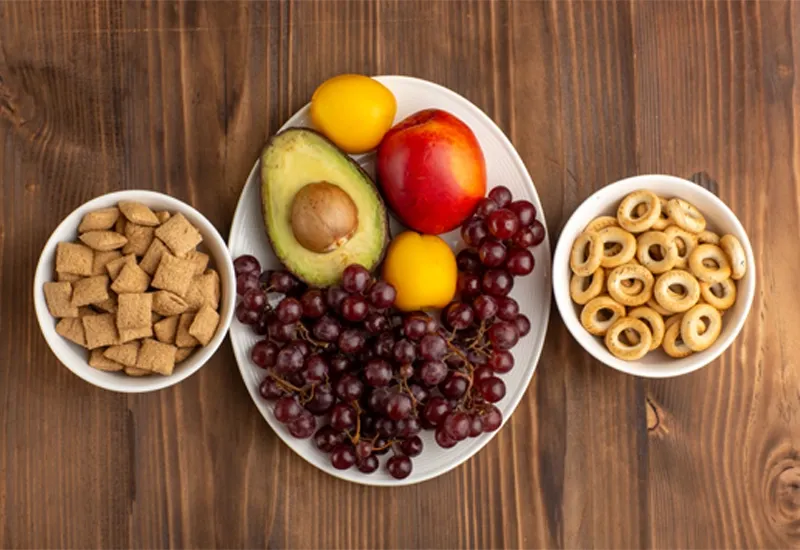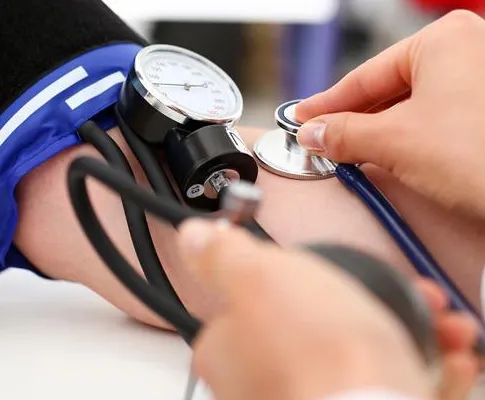
The Role of Diet in Managing Hypertension: Foods to Eat and Avoid

Dr. W. Rizvi
16 Sept 2025
High blood pressure, medically known as hypertension, is one of the most common chronic health conditions in the United States, affecting millions of adults. Often called the “silent killer,” it usually shows no symptoms until it causes serious complications like heart disease, stroke, and kidney problems. While medication is sometimes necessary, lifestyle and nutrition play a critical role in lowering and maintaining healthy blood pressure levels. Among lifestyle changes, following a hypertension diet has proven to be one of the most effective ways to manage the condition naturally.
A blood pressure-friendly diet not only reduces the risk of cardiovascular problems but also supports overall health by strengthening the immune system, regulating weight, and improving energy levels. By learning which foods for high blood pressure are beneficial and which foods to avoid, patients can make simple daily changes that have a lasting impact.
Why Diet Matters in Hypertension
The connection between food and blood pressure is supported by decades of scientific research. Certain nutrients directly affect how the heart and blood vessels function. For example, excess sodium leads to fluid retention and increased vascular resistance, which raises blood pressure. On the other hand, foods rich in potassium, magnesium, fiber, and antioxidants relax blood vessels, improve circulation, and protect the arteries.
Managing hypertension with food is not about rigid restrictions but about creating balance. The right nutrition plan helps reduce the workload on the heart, lowers strain on arteries, and prevents long-term complications. Alongside regular exercise, stress management, and limiting alcohol, diet remains one of the most reliable tools in preventive cardiology.
Foods That Help Lower Blood Pressure
One of the pillars of a diet for blood pressure management is focusing on foods that actively lower hypertension risk. Fruits, vegetables, whole grains, lean proteins, and healthy fats all contribute to a more balanced cardiovascular system.
Fruits and vegetables play a central role in a hypertension diet because they supply potassium, which helps balance sodium levels in the body. Leafy greens such as spinach, kale, and Swiss chard, along with potassium-rich fruits like bananas, oranges, and avocados, are especially helpful. Berries, including blueberries and strawberries, contain powerful antioxidants that protect blood vessels from damage.
Whole grains such as oats, quinoa, brown rice, and whole wheat bread provide dietary fiber, which has been shown to lower cholesterol and improve heart health. Unlike refined grains, whole grains release energy slowly, preventing blood sugar spikes that can put stress on the cardiovascular system.
Low-fat dairy products are another essential component of a blood pressure-friendly diet. Yogurt, skim milk, and low-fat cheese provide calcium, a mineral that helps regulate blood vessel contraction and relaxation.
Lean proteins, particularly fatty fish like salmon, tuna, and mackerel, supply omega-3 fatty acids that reduce inflammation and lower blood pressure. Plant-based proteins such as beans, lentils, tofu, and chickpeas are excellent alternatives to red meat and provide fiber along with essential nutrients.
Nuts and seeds like almonds, walnuts, flaxseeds, and chia seeds are high in magnesium and healthy fats. Regular consumption of these foods in moderation has been linked to improved cardiovascular function.
Finally, using healthy oils such as olive oil and avocado oil instead of saturated or hydrogenated fats contributes to better heart health by providing monounsaturated fats that reduce artery strain.

Foods to Avoid for Better Blood Pressure Control
Just as some foods protect the heart, others contribute to high blood pressure. A successful hypertension nutrition plan requires limiting or avoiding these triggers.
One of the most significant contributors is excess sodium. High sodium intake causes water retention, which directly raises blood pressure. Processed foods such as canned soups, packaged snacks, frozen meals, and fast food often contain hidden salt. Reducing sodium consumption to recommended daily levels is one of the fastest ways to improve blood pressure control.
Processed and red meats such as sausages, bacon, and deli meats are high in both sodium and unhealthy fats. Their regular consumption has been linked to cardiovascular disease and hypertension.
Sugary foods and beverages also play a role in raising blood pressure indirectly by promoting weight gain, insulin resistance, and metabolic disorders. Sodas, sweetened juices, candies, and desserts should be limited to protect both heart health and blood sugar stability.
Saturated and trans fats found in fried foods, baked goods made with shortening, and heavily processed snacks are harmful to arteries. These fats promote inflammation, narrow blood vessels, and elevate cholesterol, all of which worsen hypertension.
Lastly, excessive alcohol consumption can elevate blood pressure and interfere with the effectiveness of antihypertensive medications. Moderation is key for those who choose to drink.
The DASH Diet: A Proven Plan
Among all nutritional approaches, the DASH diet (Dietary Approaches to Stop Hypertension) is one of the most widely recommended. Developed by researchers and supported by the American Heart Association, this diet emphasizes fruits, vegetables, whole grains, lean proteins, and low-fat dairy while significantly reducing sodium and processed foods.
Studies have shown that the DASH diet can lower blood pressure within just a few weeks. Its success comes from a balance of nutrients such as potassium, calcium, and magnesium, all of which directly support cardiovascular health.
Lifestyle Habits That Support a Hypertension Diet
Food choices work best when combined with other healthy lifestyle habits. Regular physical activity strengthens the heart, making it more efficient at pumping blood with less effort. Stress management through practices like meditation, yoga, or breathing exercises lowers stress hormones that can temporarily raise blood pressure. Maintaining a healthy weight further reduces cardiovascular strain, and getting adequate sleep allows the body to regulate blood pressure naturally.
Hydration also plays a role, as drinking enough water helps the body maintain electrolyte balance and prevents excess sodium buildup. Together, these practices amplify the benefits of a blood pressure-friendly diet.

Need Any Help?
Contact UsWho Benefits Most from a Hypertension Diet?
A hypertension diet can benefit everyone, but it is especially important for individuals who are at higher risk. Adults with a family history of high blood pressure, people already diagnosed with hypertension, and those with related conditions such as diabetes or kidney disease are prime candidates for dietary interventions.
Older adults often face blood vessel changes that naturally increase blood pressure, making nutrition even more important. Likewise, individuals who consume large amounts of processed or salty foods may notice significant improvements when they transition to a more heart-healthy diet
Conclusion
Managing hypertension with food is one of the most effective ways to protect cardiovascular health and reduce long-term risks. By choosing more foods for high blood pressure, such as fruits, vegetables, whole grains, lean proteins, and healthy fats, while cutting back on sodium, processed foods, and sugary beverages, patients can take control of their health naturally.
Talk with a healthcare provider or dietitian about creating a personalized hypertension diet plan that suits your lifestyle and needs. The steps you take today can make a lasting difference in your heart health tomorrow.
This blog is intended for educational purposes only. It does not provide medical advice, diagnosis, or treatment.
Resource:
Hypertension Treatment Options: Medications and Lifestyle Changes
Share This:
Disclaimer
*Please note that the information provided in the blogs and articles is intended for general informational purposes only and should not be considered medical advice. We strive to bring you the latest information about the endocrine world; however, we encourage you to seek individual medical advice and treatment options during your consultation with a qualified healthcare professional. *
